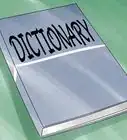This article was co-authored by wikiHow staff writer, Sophia Latorre. Sophia Latorre is a Content Manager on the wikiHow team. Before joining wikiHow, Sophia worked as a technical editor and was published in six International Energy Agency (IEA) Wind Annual Reports. Now, she writes, edits, and reviews articles for the wikiHow Content Team, working to make the content as helpful as possible for readers worldwide. Sophia holds a BA in English from Colorado State University.
wikiHow marks an article as reader-approved once it receives enough positive feedback. This article received 11 testimonials and 87% of readers who voted found it helpful, earning it our reader-approved status.
This article has been viewed 247,357 times.
Learn more...
A Cockney accent is one of the many British dialects, and is commonly associated with the East End of London. If you want to try out a Cockney accent, you only need to make a few simple changes, no matter where you're from! For example, drop the “h” at the beginning of words and the “r” at the end of words. You can also try out Cockney rhyming slang, which is a fun and funny way of using rhyming words in place of the intended word.
Steps
Emulating the Accent
-
1Drop the letters “t” and “k” from the middle of words. A glottal stop is the linguistic term for dropping the sound of the letter “t” from the middle of a word. You can do the same with the letter “k” in the middle of a word, as well.[1]
- "Scottish," for instance, would be pronounced "Sco'ish."
- “Blackboard” becomes “bla'board.”
-
2Drop the “h” from the beginning of words. The Cockney accent doesn't put emphasis on the “h” sound when it is the first letter in a word. So, for example, pronounce “herb” as "erb," "horse" as "orse," and "hopefully" as "opefully."[2]Advertisement
-
3Don't pronounce the “r” at the end of words. Like most English accents, a Cockney accent drops the “r” from the end of a word. For example, "mother" becomes "mo-thah," and "car" becomes "cah."[3]
-
4Replace “th” with “f” or “v.” For words that start with a “th” sound, like “think,” change the “th” to an “f,” as in “fink.” “Thought” becomes “fought,” and “thirsty” becomes “firsty.” For words that have a “th” sound in the middle, like “Northern,” replace it with a “v” sound, such as “Norvern.”[4]
-
5Pronounce the short “a” as "ah." The typical short “a” sound is evidenced by the word “cat.” Change your short “a” to sound more like the “a” in "father," for words with a short “a” sound in the middle, like "bath" and "can't."[5]
-
6Substitute an “l” for a “w” at the end of words. When an “l” sound is at the end of a word, you can substitute the “l” for a vowel sound, like “w.” For instance, “pal” would sound like “pow,” and “trouble” becomes “trou-bow.”[6]
-
7Drop the “g” from -ing endings. A Cockney accent is very informal, and often leaves off the “g” in words that end with “ing.” For instance, "starting" becomes "startin'" and "laughing" becomes "laughin'."[7]
-
8Use Cockney substitutions. To speak with a Cockney accent, occasionally substitute grammatically-incorrect words for grammatically-correct words. For example, say "ain't" instead of "isn't" or "is not," and use "me" instead of "my." You can also use double negatives, like “I didn't see nothin' there!”[8]
- For example, say "I'm goin' to walk the dog with me mum," or "I ain't lookin' forward to the meetin' on Monday."
Using Rhyming Slang
-
1Use rhymes in place of the intended word. To people from other countries, Cockney rhyming slang may seem nonsensical, but the concept is fairly simple. Choose a phrase that rhymes with your intended word and then use that rhyme in place of the intended word.[9]
- One common example of rhyming slang is saying "apples and pears" in place of “stairs.” The last word in this phrase, "pears," rhymes with the actual meaning—"stairs." You could say, “Blimey, I have to climb four sets of apples and pears just to get to me flat!”
- Another example is using “Barney Rubble” to stand in for “trouble.” You could say, “Mate, you're sure gonna be in Barney Rubble for that one!”
-
2Say only the first word of the rhyme. When using Cockney rhymes in a sentence, you don't need to say the whole rhyme. For example, say, “Mum rang me on the dog.” The full rhyme would be “dog and bone,” in which “bone” is actually the word that rhymes with “phone.” Yet, to make it more fun—and confusing—you only use the first part of the rhyme.[10]
- Another example is, “Let's head to the nuclear tonight, boys!” In this instance, “nuclear” refers to “nuclear sub(marine),” which stands in for “pub.”
-
3Memorize common Cockney rhyming slang. Do an Internet search or watch some Cockney movies to learn more common rhymes. For instance, use "Ruby" (short for "Ruby Murray") for “curry,” "Adam and Eve" for “believe,” "kettle and hob" for “watch” (hob rhymes with fob, an old term for a pocket watch), "butcher's" (butcher's hook) for “look,” and "trouble and strife" for “wife.”[11]
Community Q&A
-
QuestionHow would one pronounce "like", "might" or "right"?
 Community AnswerWhen I say these words in a cockney accent, I sort of imagine that I have a large piece of apple in my mouth. You have to expand your mouth in a more "o" ish shape when you get to the "igh" part. Don't enunciate the "t" as much if at all. Drag out the "igh" a little bit. Don't say the "r" in right. I hope this helps. Or should I say," Ay 'ope dis 'elps."
Community AnswerWhen I say these words in a cockney accent, I sort of imagine that I have a large piece of apple in my mouth. You have to expand your mouth in a more "o" ish shape when you get to the "igh" part. Don't enunciate the "t" as much if at all. Drag out the "igh" a little bit. Don't say the "r" in right. I hope this helps. Or should I say," Ay 'ope dis 'elps." -
QuestionDoes "mother" follow the same dialogue rules regarding pronunciation?
 Community Answer"Mother" should sound something like "movah," along with "brother" which sounds like "bruvah." For example, "Movah, I'm goin' out wiv me bruvah."
Community Answer"Mother" should sound something like "movah," along with "brother" which sounds like "bruvah." For example, "Movah, I'm goin' out wiv me bruvah." -
QuestionWhy do young Cockneys say "bruv" instead of "bro"?
 Community AnswerBecause they pronounce "brother" as "bruvah," so "bruv" is a shortened version of that.
Community AnswerBecause they pronounce "brother" as "bruvah," so "bruv" is a shortened version of that.
References
- ↑ http://dialectblog.com/british-accents/
- ↑ https://www.babbel.com/en/magazine/british-accents-cockney
- ↑ http://dialectblog.com/british-accents/
- ↑ https://pronunciationstudio.com/cockney-englands-most-famous-accent/
- ↑ http://dialectblog.com/british-accents/
- ↑ http://dialectblog.com/british-accents/
- ↑ http://www.uv.es/anglotic/accents_of_english/01/examples_of_cockney_english.html
- ↑ http://www.uv.es/anglotic/accents_of_english/01/examples_of_cockney_english.html
- ↑ https://www.babbel.com/en/magazine/british-accents-cockney
About This Article
To speak with a Cockney accent, drop the “g” from words with -ing endings, don't pronounce the “r” at the end of words, and drop the “h” from the beginning of words. Pronounce the short “a” as "ah" and replace “th” sounds with “f” or “v.” Use Cockney substitutions, like saying "ain't" instead of "isn't" and "me" instead of "my," and incorporate double negatives and rhyming slang to emulate Cockney speech patterns! For more tips on pronunciation and word substitutions, read on!
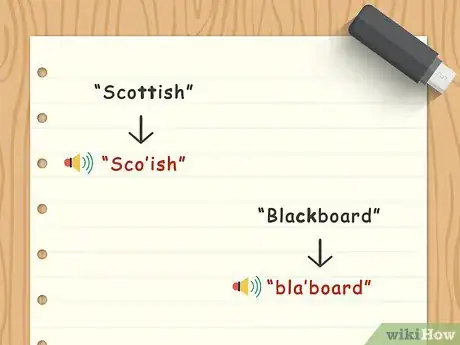
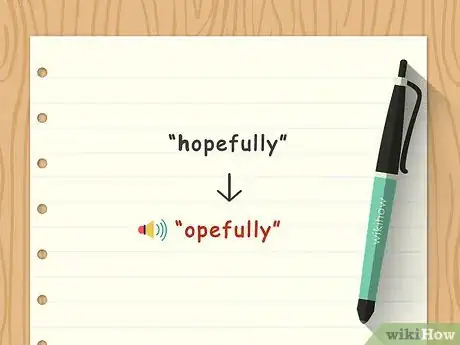
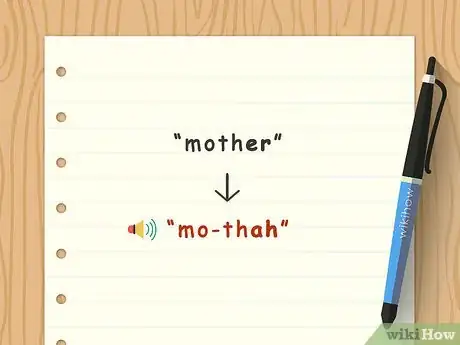
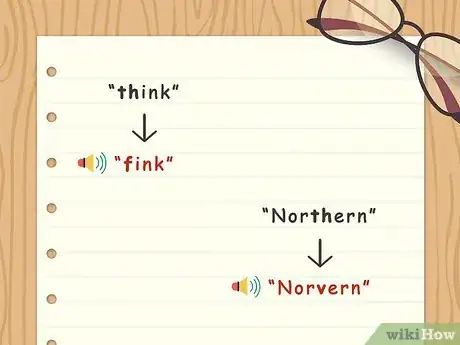
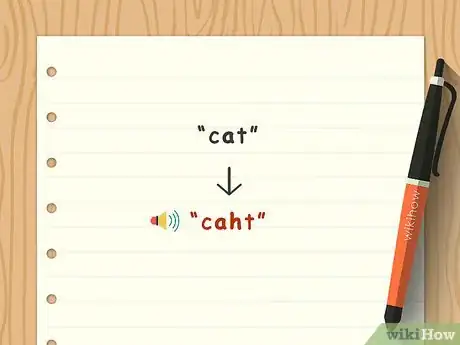
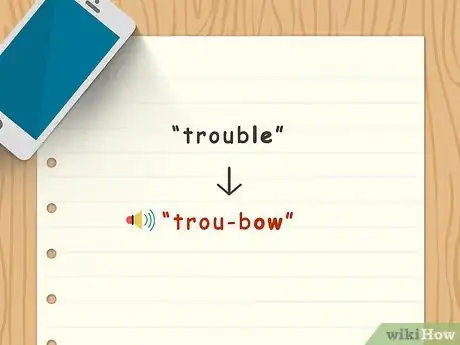
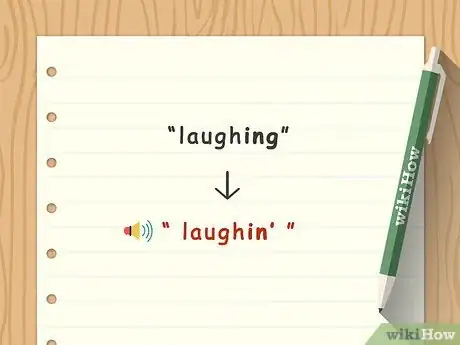
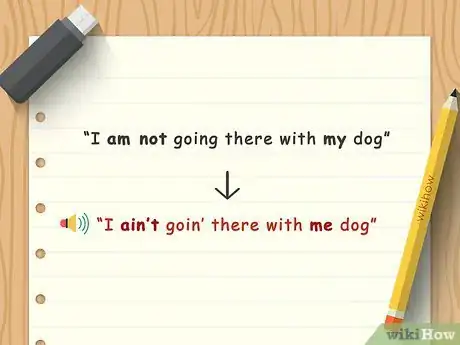
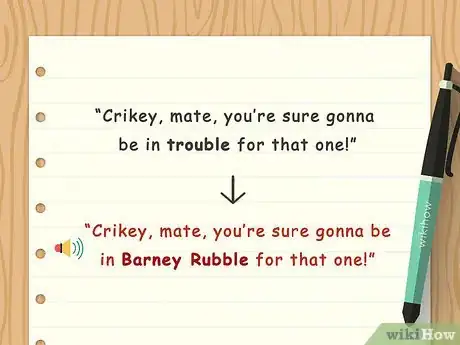
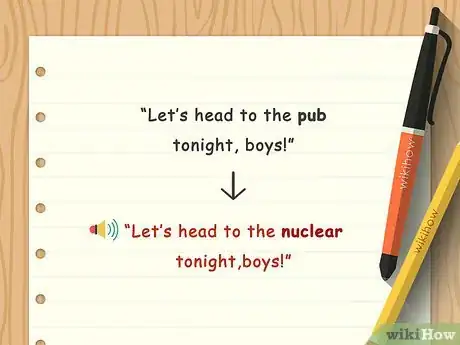
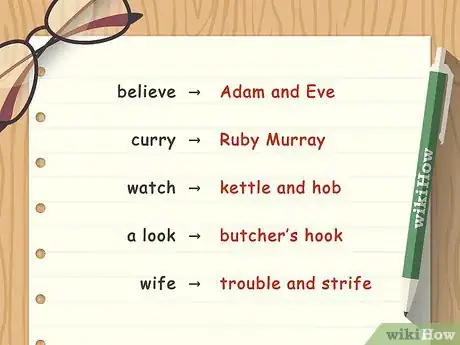

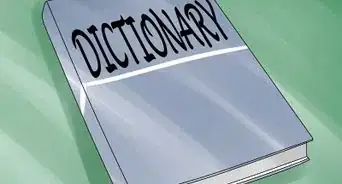






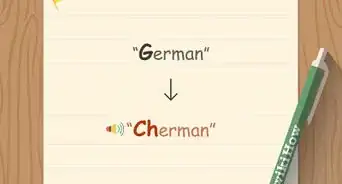




-Step-10-Version-2.webp)











